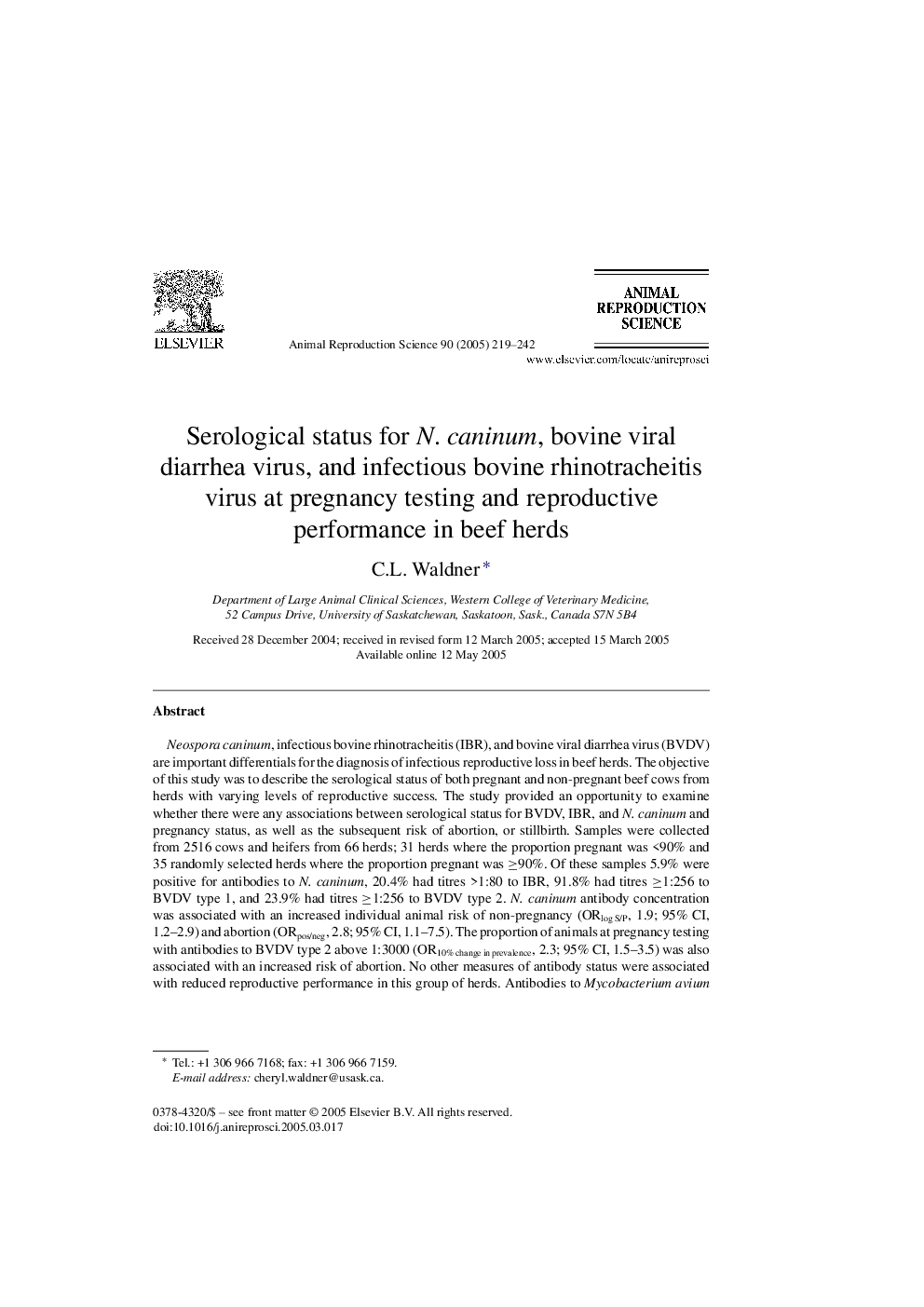| Article ID | Journal | Published Year | Pages | File Type |
|---|---|---|---|---|
| 9900210 | Animal Reproduction Science | 2005 | 24 Pages |
Abstract
Neospora caninum, infectious bovine rhinotracheitis (IBR), and bovine viral diarrhea virus (BVDV) are important differentials for the diagnosis of infectious reproductive loss in beef herds. The objective of this study was to describe the serological status of both pregnant and non-pregnant beef cows from herds with varying levels of reproductive success. The study provided an opportunity to examine whether there were any associations between serological status for BVDV, IBR, and N. caninum and pregnancy status, as well as the subsequent risk of abortion, or stillbirth. Samples were collected from 2516 cows and heifers from 66 herds; 31 herds where the proportion pregnant was <90% and 35 randomly selected herds where the proportion pregnant was â¥90%. Of these samples 5.9% were positive for antibodies to N. caninum, 20.4% had titres >1:80 to IBR, 91.8% had titres â¥1:256 to BVDV type 1, and 23.9% had titres â¥1:256 to BVDV type 2. N. caninum antibody concentration was associated with an increased individual animal risk of non-pregnancy (ORlog S/P, 1.9; 95% CI, 1.2-2.9) and abortion (ORpos/neg, 2.8; 95% CI, 1.1-7.5). The proportion of animals at pregnancy testing with antibodies to BVDV type 2 above 1:3000 (OR10% change in prevalence, 2.3; 95% CI, 1.5-3.5) was also associated with an increased risk of abortion. No other measures of antibody status were associated with reduced reproductive performance in this group of herds. Antibodies to Mycobacterium avium spp.paratuberculosis were also measured; 0.7% of samples were positive (sample to positive (S/P) >0.25) and 3.6% were suspicious (S/P, 0.10-0.25).
Related Topics
Life Sciences
Agricultural and Biological Sciences
Animal Science and Zoology
Authors
C.L. Waldner,
